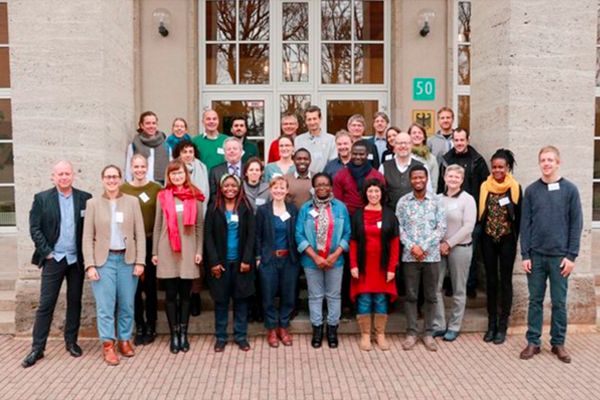How to use wood residues to develop efficiently and sustainable building materials in Ethiopia and South Africa? How much greenhouse gases are emitted in an intensive grazed savannah patch? What is the current situation of the food web of the Benguela stream? And how do chicken imports from Europe effect the markets in Ghana? Researchers of the Thünen Institute are working on many scientific questions in Africa. All together, we work in 57 cooperation in 23 African countries.
Many of those projects and cooperation are successful and often a continuation are wished. However, it should not be concealed that it is not always easy to maintain contacts in Africa. Problems may occur when the financing is finishing or simply the visa for a guest scientist is denied. On January 14th and 15th, 34 colleagues of the Thünen Institute, Julius Kühn Institute (JKI), Bundesanstalt für Landwirtschaft und Ernährung (BLE) and Physikalisch-Technische Bundesanstalt (PTB; National Metrology Institute of Germany) met in Braunschweig to discuss and find solutions for issues in the Africa activities.
The event started with a short overview on the Africa Activities by the Thünen Institute and JKI. Afterwards Siegfried Harrer (BLE) presented the viewpoint of a project-funding agency on the cooperation with Africa. Carl Felix Wolff followed with an introduction to the development of quality infrastructures by the international department of the PTB in Africa and gave insides in the everyday challenges of a big German development implementation agency conducting projects in the countries.
The valuable input in mind, all participants started intensive discussions. Main points were the development of long-lasting cooperation and contacts, project planning and implementation, knowledge management and a coherent Africa project agenda. The participants discussed problems and solutions for the integration and facilitation for African guest scientists. The group developed action points for the improvement of the ongoing and future Africa activities. In particular, the participants claimed the need for a more regular exchange of all colleagues active in Africa, to gain a better overview. The first Thünen Africa Day was a successful start to foster this exchange.
The Thünen Africa-Day was organized by Stefan Lange, Aida Gonzales-Mellado, Veronika Jorch, and Anett Richter.

